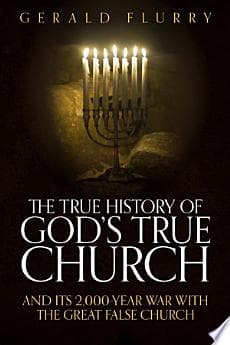- Published on
The True History of Gods True Church
- Authors

- Name
- Philadelphia Church of God
- @search?q=Philadelphia Church of God

The History of the Worldwide Church of God
The Worldwide Church of God (WCG), under the leadership of Herbert W. Armstrong, represents a unique chapter in the history of modern Christian movements. This summary encapsulates the foundational elements, historical development, and core doctrines as presented in Armstrong's February 1978 "Plain Truth" publication.
Foundation and Early Years
- Origins: The WCG was established in the early 20th century, rooted in the quest for a purer form of Christianity, emphasizing a return to the original teachings and practices of Jesus and the apostles.
- Herbert W. Armstrong's Role: Armstrong, the pivotal figure in the church's formation, sought to address the disconnect he perceived between contemporary Christian practices and biblical teachings.
Doctrinal Basis
- Authority of Scripture: The church's teachings are grounded in a literal interpretation of the Bible, with a particular focus on prophecy and its fulfillment.
- Unique Doctrines: Among its distinctive beliefs are the observance of Seventh-Day Sabbath, the rejection of the Trinity in favor of a binatarian view of God, and the emphasis on British-Israelism—the belief that modern-day British peoples and certain other nations are descended from the ten lost tribes of Israel.
Growth and Development
- Expansion: From its humble beginnings, the WCG grew significantly under Armstrong's leadership, establishing a global presence through its missionary work and media outreach, including the "World Tomorrow" radio and television programs.
- Educational Institutions: The church founded Ambassador College in 1947, aiming to educate its members in the principles and doctrines of the church, alongside secular knowledge.
Challenges and Controversies
- Doctrinal Shifts: Throughout its history, the WCG faced internal and external challenges, including doctrinal shifts that led to schisms and the departure of members.
- Legal and Financial Scrutiny: The church also encountered legal and financial issues, prompting organizational and doctrinal reforms.
Legacy and Transformation
- After Armstrong's Death: Following Armstrong's death in 1986, the WCG underwent significant theological and organizational changes, moving closer to mainstream evangelical Christianity.
- Renaming and Rebranding: In 2009, the WCG was renamed Grace Communion International, reflecting its transformed identity and beliefs.
Conclusion
The history of the Worldwide Church of God, as recounted by Herbert W. Armstrong, is a testament to the dynamic nature of religious movements. It highlights the complexities of adhering to a vision of primitive Christianity in the modern world and the challenges associated with doctrinal purity, leadership, and adaptation to changing times.
